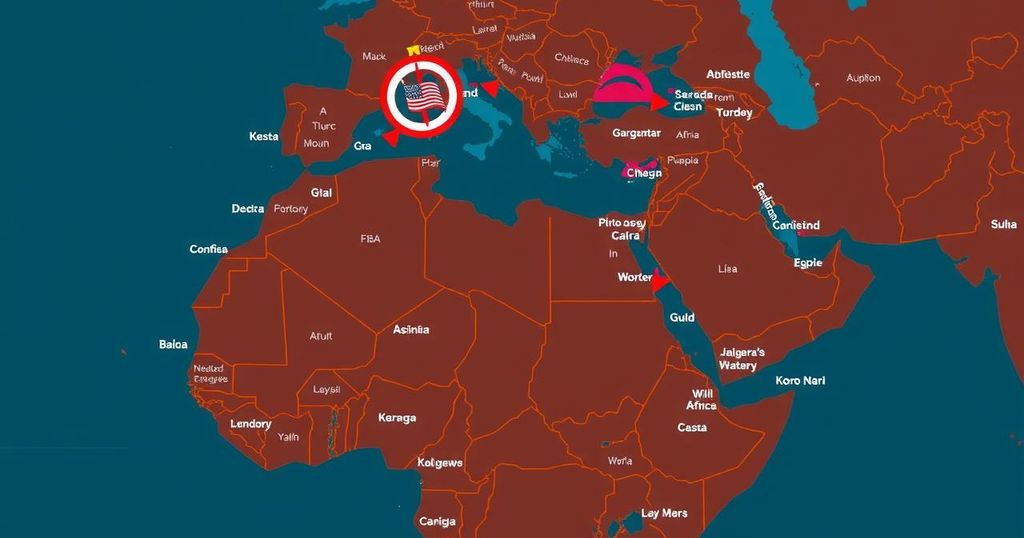The article discusses the potential shift in U.S. policy towards the Horn of Africa, particularly under Trump’s ‘America First’ agenda. This change may lead to a decreased focus on humanitarian efforts and partnerships in nations like Sudan and Ethiopia, amidst ongoing regional conflicts. The implications of this policy shift highlight a strategic reorientation in how the U.S. engages with the region.
The current geopolitical landscape in the Horn of Africa is under significant scrutiny as the United States reassesses its foreign policy priorities, particularly under the influence of former President Donald Trump’s ‘America First’ doctrine. This policy emphasizes national interests, which may lead to a diminished emphasis on humanitarian aids and alliances that were previously seen as integral to U.S. strategy in the region. Consequently, countries such as Sudan and Ethiopia could experience shifts in American engagement, particularly in light of ongoing conflicts and instability that require attention and intervention on various fronts, including humanitarian assistance and military partnerships.
The Horn of Africa, comprising nations such as Sudan and Ethiopia, has been a focal point of U.S. foreign policy due to its strategic importance and ongoing crises, including conflict resolution and humanitarian needs. Under previous administrations, there was a strong emphasis on international cooperation and support for democratic processes in the region. However, recent shifts toward a more self-interested American stance may redefine relationships and commitments, thereby impacting the political and social dynamics in these nations, where U.S. influence has historically played a crucial role in mediating conflict and promoting stability.
In conclusion, the implications of Trump’s ‘America First’ policy are poised to significantly alter U.S. involvement in the Horn of Africa, with direct effects on its humanitarian and diplomatic engagements. As the region continues to confront multiple challenges, understanding these policy shifts will be crucial for stakeholders seeking to navigate the complexities of international relations and regional stability. The changing dynamics may require adaptive strategies from all parties involved in the Horn of Africa.
Original Source: www.al-monitor.com






